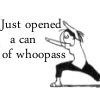Post by Emma on Sept 22, 2010 22:44:41 GMT -5
Though it is unknown and hotly debated whether they or the dragons came first, the dwarves, or knurlan, of Alagaësia are undoubtedly as old as the mountains they inhabit. Though their earliest tales recount a nomadic lifestyle, most of their history revolves around the building of their great cities as well as the constant infighting between them and the dragons, their age-old enemies. Though none of these battles were nearly as savage or as bloody as Wyrdfell, enough dwarves and dragons have died at the other race’s hands to make each hold the other race in great contempt.
Besides these endless spats, dwarves seldom emerge from the Beors, and are rarely seen in Alagaësia’s lowlands. A sturdy, stout race with sacred traditions mired in clan warfare and their polytheistic religion, they dislike change and outsiders, especially the elves. Dwarves generally range from three to four and a half feet in height, but are heavily built to make up for it. Very fair of skin, hair, and eye colour, their looks are ‘good-natured’ as opposed to ‘beautiful’. Dwarves were almost entirely uninvolved with any of the elves’ or humans’ major wars, let alone the Blue Divide, and rarely pay mind to them.
The dwarven pantheon includes Gûntera, king of the gods, a warrior and scholar; Kílf, Gûntera’s queen and the goddess of water; Urûr, master of the heavens and the air; Morgothal, the god of fire; Sindri, “mother earth”; and Helzvog, generally the dwarves’ favourite god, who created their race from the roots of the mountains.
THE DWARVEN LANGUAGE
To make any noun plural, add an N at the end. To indicate that you are the son/daughter of someone, add a Z at the end of that someone’s name. Also, unlike the ancient language, where the subject comes first (‘The gates, raise!’) the sentence structure is exactly the same in dwarvish as it is in English (‘Raise the gates!’). Also, the equivalent of '-est', such as 'holiest', is done by adding an I at the end of an adjective.
Since the dwarven dictionary is too long to comfortably fit on this page, simply click here for the glossary.
Staff Notes on Dwarves-
- Even though they’re almost as unpopular as the Urgals as characters, we’d love to have some dwarves. However, keep in mind that he or she would have to have a good reason to leave the Beors unless it was exile, since dwarves are total homebodies.
- Dwarves are not immortal, but their small statures and the fact that they’re not easily brought down in battle makes them very long-lived, approximating three hundred years.
- Half-dwarves are an interesting concept, but since they don’t leave their mountains and are largely considered a myth by humans, they’d be even rarer than half-elves.
- Dwarves are the least skilled race at magic, and even those who learn it can do little more besides light a candle. However, they are exceptional mindbreakers.
Besides these endless spats, dwarves seldom emerge from the Beors, and are rarely seen in Alagaësia’s lowlands. A sturdy, stout race with sacred traditions mired in clan warfare and their polytheistic religion, they dislike change and outsiders, especially the elves. Dwarves generally range from three to four and a half feet in height, but are heavily built to make up for it. Very fair of skin, hair, and eye colour, their looks are ‘good-natured’ as opposed to ‘beautiful’. Dwarves were almost entirely uninvolved with any of the elves’ or humans’ major wars, let alone the Blue Divide, and rarely pay mind to them.
The dwarven pantheon includes Gûntera, king of the gods, a warrior and scholar; Kílf, Gûntera’s queen and the goddess of water; Urûr, master of the heavens and the air; Morgothal, the god of fire; Sindri, “mother earth”; and Helzvog, generally the dwarves’ favourite god, who created their race from the roots of the mountains.
THE DWARVEN LANGUAGE
To make any noun plural, add an N at the end. To indicate that you are the son/daughter of someone, add a Z at the end of that someone’s name. Also, unlike the ancient language, where the subject comes first (‘The gates, raise!’) the sentence structure is exactly the same in dwarvish as it is in English (‘Raise the gates!’). Also, the equivalent of '-est', such as 'holiest', is done by adding an I at the end of an adjective.
Since the dwarven dictionary is too long to comfortably fit on this page, simply click here for the glossary.
Staff Notes on Dwarves-
- Even though they’re almost as unpopular as the Urgals as characters, we’d love to have some dwarves. However, keep in mind that he or she would have to have a good reason to leave the Beors unless it was exile, since dwarves are total homebodies.
- Dwarves are not immortal, but their small statures and the fact that they’re not easily brought down in battle makes them very long-lived, approximating three hundred years.
- Half-dwarves are an interesting concept, but since they don’t leave their mountains and are largely considered a myth by humans, they’d be even rarer than half-elves.
- Dwarves are the least skilled race at magic, and even those who learn it can do little more besides light a candle. However, they are exceptional mindbreakers.


